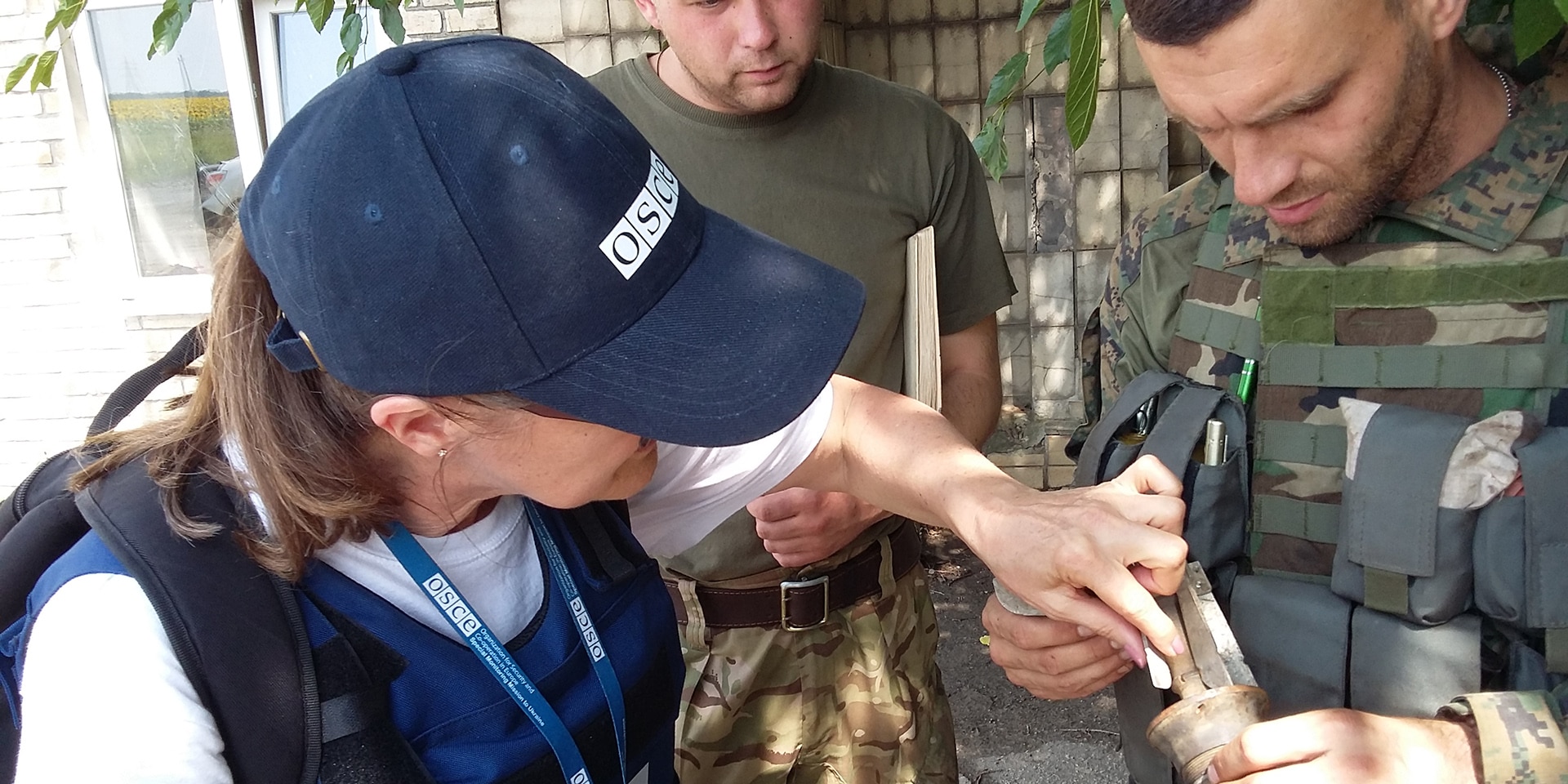"The presentation of the new OSCE action plan in Vienna sends a strong signal"
The priorities of Switzerland’s action plan for 2022–25 are to develop a dialogue process with a view to an anniversary summit in Helsinki in 2025, to consolidate the foundations of the OSCE, strengthen arms control and increase mediation capabilities in conflict situations. We interviewed Thomas Greminger, former secretary general of the OSCE.

The director of the Geneva Centre for Security Policy, Ambassador Thomas Greminger served as secretary general of the OSCE from 2017 to 2020. © Keystone
For Switzerland, the Organization for Security and Co-operation in Europe (OSCE) has always been a decisive instrument for conflict prevention and resolution and as a platform for dialogue. On 13 January 2022, on the occasion of his first official visit as president of the Swiss Confederation, Ignazio Cassis had the opportunity to exchange views with the secretary general of the OSCE, Helga Schmid. During their talks, he outlined Switzerland's objectives and priorities within the OSCE in the run-up to the 50th anniversary of the negotiations on the Helsinki Final Act of 1975.
"The action plan has the full potential to reinvigorate our commitment in a context of polarisation and tension," says Thomas Greminger. Throughout his career he has been committed to security and peace. In April 2021, he left Vienna, where he had served for three years as secretary general of the OSCE, to take up his post as director of the Geneva Centre for Security Policy.
Key priorities of the 2022–25 action plan
Switzerland wishes to work towards preserving and revitalising the achievements of the OSCE and its action plan is divided into six objectives to be achieved by 2025.
Specifically, it plans to participate in the development of a dialogue process with a view to preparations for the 50th anniversary of the Helsinki Final Act, to strengthen arms control and thus confidence among the participating states, and to increase mediation capabilities in conflict situations. The success of this requires the cooperation of all actors involved in the OSCE. Decisions made at the OSCE are based on the principle of consensus. Therefore, the successful implementation of the action plan does not depend solely on Switzerland.
Switzerland also intends to set out an optimistic agenda for the future. In this regard, the focus will be on digitalisation and the further development of scientific diplomacy. Switzerland also aims to foster trust between states by strengthening economic connectivity. Switzerland's tradition of good offices will certainly be a useful tool in achieving this positive agenda over the next three years.
Rationale for a new action plan for the OSCE
Over time, organisations such as the OSCE lose their room for manoeuver and crises of confidence between states too often hinder the search for a common solution. One of the main objectives of the action plan is therefore to strengthen the OSCE's capacity to act so that it regains its ability to be more operationally active.
From the inception of the OSCE, Switzerland has always contributed to the search for compromise and the removal of obstacles. This was particularly noticeable in the 1970s and 1980s, and again during Switzerland's two chairmanship years in 1996 and 2014. But there has been no continuity in this effort. The 2022–25 action plan is thus a tool to revive Switzerland's foreign policy commitment to the OSCE.
"This renewed commitment from Switzerland with the presentation of the new action plan is an important message in itself," says Greminger. "But the fact that the President of the Confederation is presenting it in Vienna sends out another strong signal." In this sense, it also adds a certain urgency to the fostering of a climate of security in Europe.
An ambitious agenda for the 50th anniversary of the Helsinki Final Act
Switzerland sees the 50th anniversary of the Helsinki Final Act – the act that laid the foundations of the OSCE and of cooperative security – in 2025 as an opportunity to take stock and look to the future. With its action plan for 2022–25, Switzerland aims to identify measures that help strengthen the OSCE. The action plan does not claim to present Switzerland's policy within the OSCE in a comprehensive manner. Instead, it focuses on areas where Switzerland can add value by 2025.
"The agenda will be ambitious if you look at the current situation," says Greminger. "But with a shared political will, we can kick-start the OSCE machine by 2025." Beyond the objectives set, the initiative also aims to create an alliance of countries ready to strengthen the work of the OSCE, as was the case in the 1970s and 1980s. "At that time, neutral and non-aligned countries formed a group of states willing to place their shared interests before their own," he explains. An alliance of half a dozen countries, including Switzerland, would be enough to restart the process of cooperative security."
Also, awareness of cooperative security issues has changed in recent times. It has grown in recent months among the countries at the heart of Europe. "There is an urgent need to address these issues through dialogue, but we must also accept that there are no easy solutions."
Strengthening multilateralism in international organisations
It is one of Switzerland's roles to facilitate dialogue between states in international organisations. Switzerland’s bid for a seat on the UN Security Council would, if successful, make this responsibility even more important in concrete terms, reinforcing the need for coordinated multilateral action at the universal (UN) and regional (OSCE) levels. This is a fitting role for a state of our size, according to Greminger.
Climate change and the fight against terrorism are just two examples of challenges that cannot be tackled without multilateral cooperation. "We observe that all major security risks are cross-border and can therefore only be solved through international cooperation," says Greminger. "That's why we need to strengthen the tools at our disposal to foster multilateral platforms, which are currently grappling with a crisis of confidence."
A priority for the Federal Council
The presentation of the document by the Federal Department of Foreign Affairs (FDFA) was one of the annual objectives of the Federal Council for 2021. The action plan aims to implement Switzerland's OSCE policy in accordance with its Foreign Policy Strategy 2020–23, of which the promotion of peace and security is a priority.
To ensure the coherence of the measures, the FDFA was able to count on contributions from the Federal Department of Defence, Civil Protection and Sport, the Federal Department of Economic Affairs, Education and Research and other relevant services of the Federal Administration
Switzerland's action plan for the OSCE for 2022–25 (PDF, 28 Pages, 3.9 MB, English)



